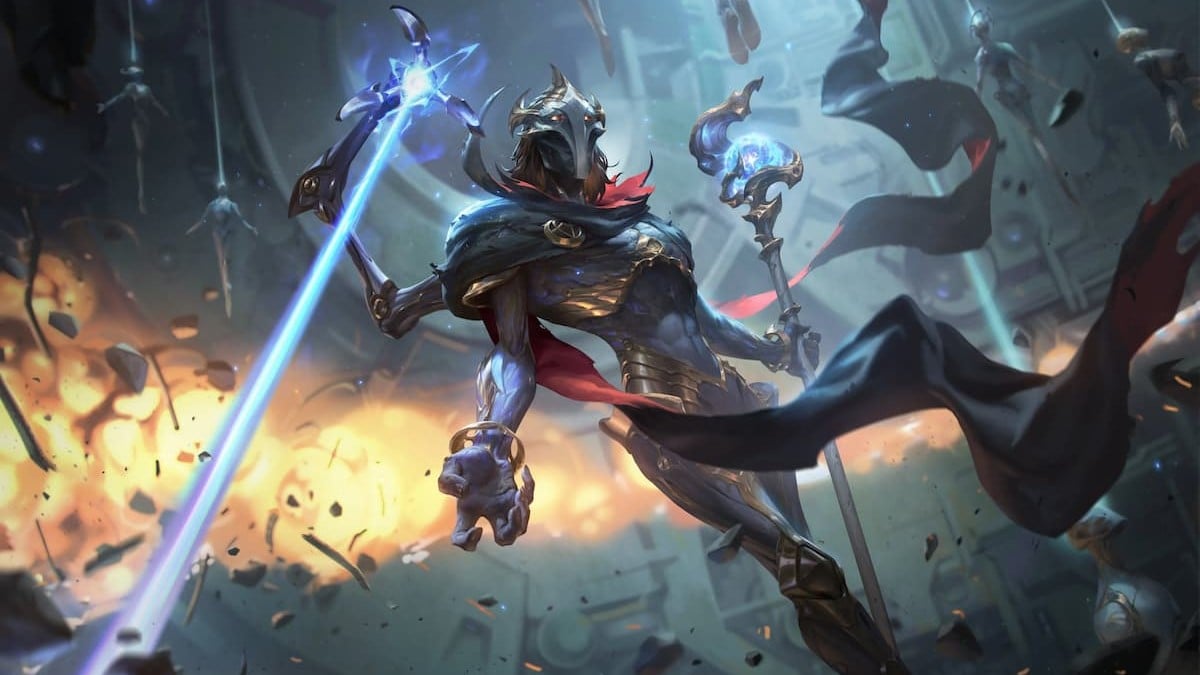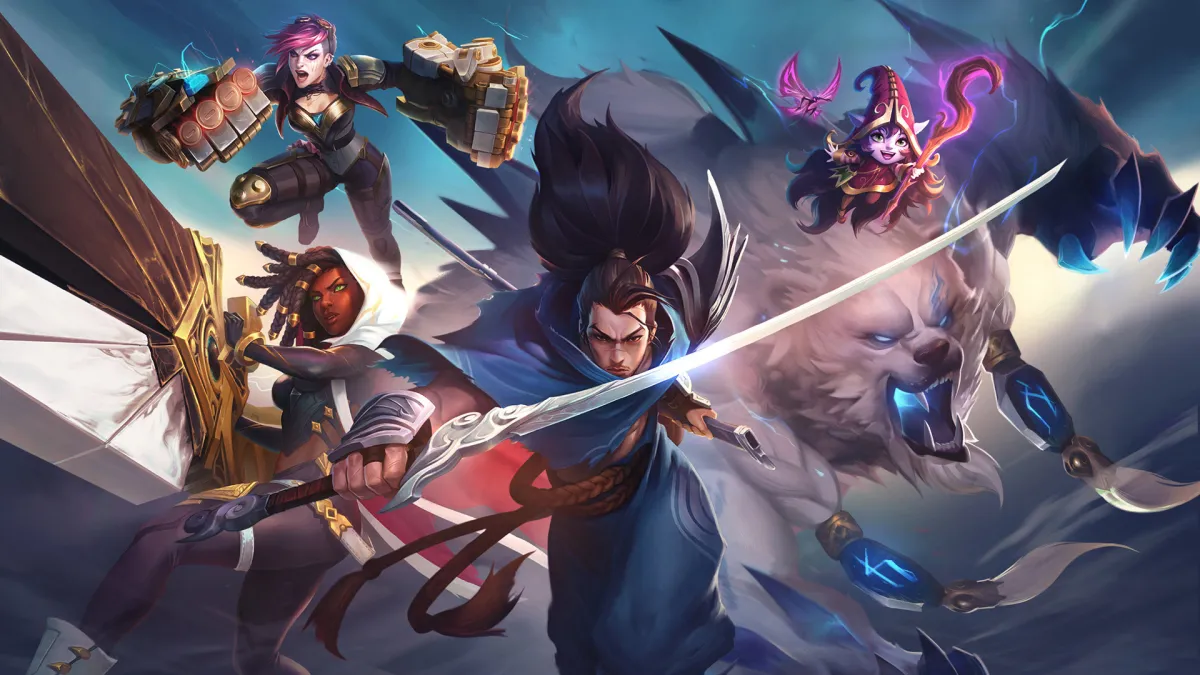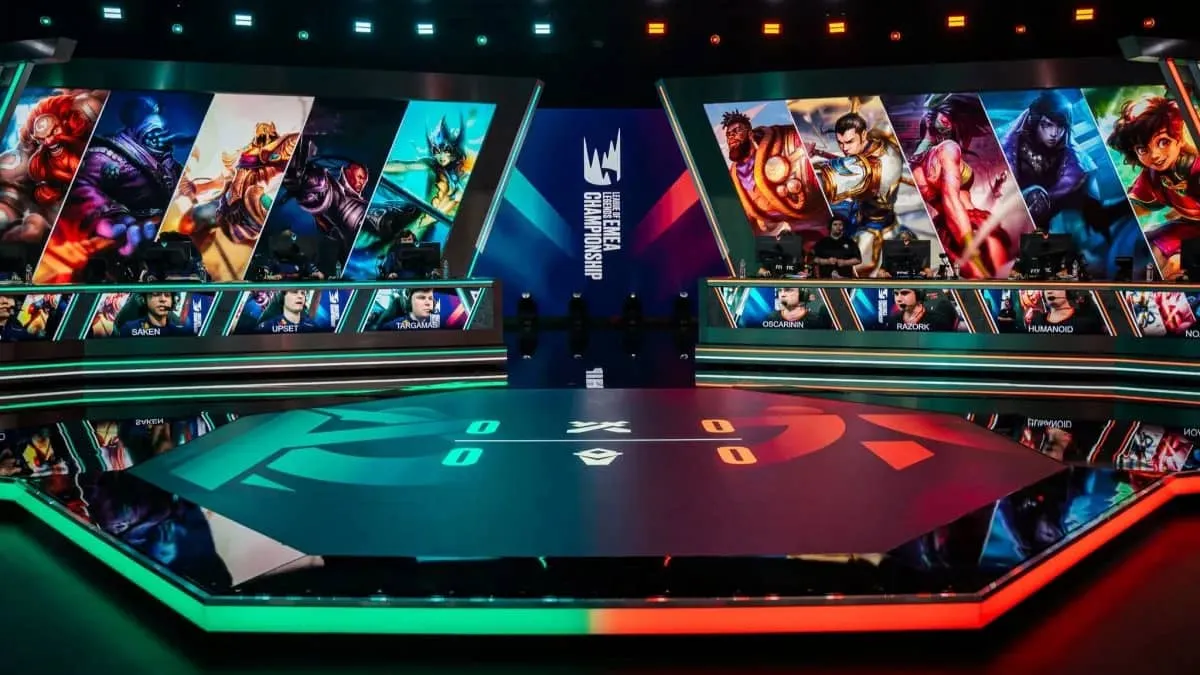League of Legends is a very complex game. Regardless of it’s debateable standing in difficulty or complexity compared to other esports, it’s important to recognize this fact and not downplay the enormity of the factors that must be considered in order for a player to make the perfect decision. In order for a player to make the right decision in every moment of every game, they would need to instantaneously process mountains of information perfectly every split second again, again and again for the entirety of the game.
Lets take a Mid player for example, and list some of the things they need to keep in mind in order to play out their lane properly. Their own champions and lane opponents champions abilities, base stats, items, and summoners. How all those interact to determine how the lane matchup is played (who wins trades under what conditions, who has kill pressure with the wave in certain positions, etc.).
The same Mid knowledge is required for both sides Junglers. Tack on where your jungler is and how healthy he is, where their jungler could be and how healthy he’s likely to be and where wards could be. Then have the knowledge to take all these factors – many of which shift every second – and understand how the combination of the two champions on each side interacts with each other. These are all things required just to play the laning phase in a very basic sense, and only considering four out of the ten players on the map. And they have to be kept in mind and reevaluated every second the laning phase continues.
This is obviously a ridiculous expectation to have. No person is capable of calculating this many shifting factors perfectly, thousands and thousands of time every game. There are of course some who are especially adept at it, but even they cannot approach perfection. The burden of knowledge, computation, and concentration is simply far too large, and that’s before you even take into account that the player is required to execute advanced and precise motor skills at the same time.
So from this example we can see that perfection is already a completely unrealistic goal, even for a single game. But as I said before, this was just taking into account the Mid/Jungle 2v2 laning phase! In order to truly play the game to perfection a player would have to expand the previous knowledge to all ten champions on the map, their interactions with each other, their and the minions constantly shifting positions, and innumerable other minute details all coming together to paint an unbelievably complex and dynamicly shifting system. Things such as knowing the precise pushing power of the opposing top laner combined with his movespeed means he could roam to mid in 25 seconds, so I need to make sure my wave isn’t in a gankable position or back off at that time is theoretically possible, but again beyond the realm of reasonable expectation. And that is but one variable among literally thousands if not millions. But that doesn’t stop the enemy Ahri from getting Stand United by her Shen when you step one inch too far up midlane to last hit a caster minion, leading to your demise.
The point of all this is to illustrate a simple but often overlooked truth when it comes to analysis: Every player is going to make multiple mistakes every game. They could be big or small, noticable by a novice or an expert, or noticed by no one. It’s impossible to know the perfect play in every moment, so players are forced to rely on their experience to guide these decisions for them. Since the burden of complexity is so great, they must simply come up with rules and guidelines they believe to generally be correct, and then test them out repeatedly until what they think is the correct reponse becomes instinct. By practicing these situations repeatedly, they are able to gain the confidence and comfort to know they are making a sound decision without having to think about it. This comfort with the situation for the overwhelming majority of players comes from experience and is crucial to performance, as becoming flustered by the unexpected or nervous with the unfamiliar can completely throw off the normal thought processes and mechanical performance exhibited by a player. Yet even with players practicing 10+ hours a day, it just isn’t possible for them to have enough to experience to know their champions limits in every situation. In fact the majority of player habits are ones built up as general rules of thumb for every game, or every game on their specific champion, not matchup specific ones.
For this reason, the most underrated variable in a champions overall power is their ability to signifcantly deviate the variables of what is a mistake from the norm. I’ll refer to this as increasing the burden of complexity. By doing this they prey on the inherent habits that players are forced to rely on in order to make correct decisions. In my opinion its a general truth of the game that the champions that have been extremely powerful for the longest stretches of time are so mainly because of this (and often due to flexibility). This hidden aspect of power causes them to be consistently underrated when evaluated from a raw stats perspective. Lets go over some examples of this and look at what makes them so difficult to deal with:
Individual Mobility
The most powerful and abusable example of this is mobility. Things such as Twisted Fate/Shen/Nocturne ultimate greatly change the dynamic of where someone can position and not be caught out for a free kill. An opposing player who is not used to facing one of these picks will make multiple positional errors a game simply by following the habits they always rely upon, as against 90%+ of enemy team compositions, being in that position isn’t actually a mistake! Not only is this increasing the burden of complexity on the opponent, but it is doing it from outside the players normal sphere of concentration. The opposing Nocturne is not constantly in your face as you are laning, he is out of sight. But if he is out of mind for even one second, it can lead to a death. This is much harder to develop new habits against then something like learning the trade potential of a champion in lane, where it is constantly your focus and you have several trade opportunities each minute. These Ultimates only come around every few minutes, and as such you may only be affected by them once or twice a game (especially in solo queue where a lot of practice takes place). As such it can take significanly longer to develop the proper habits against them, as the negative reinforcement for a mistake is significantly less frequent, and the limits of the mistake are much harder to identify due to imperfect information. Of course over a long period of time players can adjust and make mistakes against these less frequent – as we have seen with TF and Shen over the course of competitive League history – but it often takes weeks or even months for players and teams to adjust against abilites with this wide a breadth of application.
This doesn’t just apply to globals however. Champions such as Kassadin, Lee Sin, and Thresh have shown how devastating this is on a more micro level as well. During the prime of Kassadin, your ADC might be attempting to solo push the enemy bot tower after theirs has already been taken and the enemy bot lane have moved on. Against most champions they can do this safely. If there is an enemy Kassadin on the bottom side of the map, they may be as good as dead due to simply not being able to escape his exceptional mobility. You can say the same for Lee Sin on a multitude of levels. You may think you can play agressive in lane as getting hit by a level 4 Ahri’s charm won’t kill you, but against a Lee Sin who can ward hop over the wall and hit you with his Q during the duration of the charm CC, it is suddenly a death sentence. Similarly your positioning as an ADC might seem fine until you are flash flayed by the enemy thresh who throws a lantern to his jungler. Again, these champions make common movements and positions that aren’t mistakes against the vast vajority of champions potentially game losing errors, and as such increase the burden of complexity on the opponent significantly.
Team Mobility and Hard Engage
Even more powerful than an individual champions mobility however, is the ability to effect the positioning of multiple champions at once. This applies all the same pressure as outlined for Individual Mobility, but multiplies them in two ways. Lets take a look at what was for an extended length the most powerful example of this, Sivir. Having something as powerful as Sivir Ultimate again causes positions that are otherwise correct to be potentially game losing mistakes. Posturing for a dragon fight when behind in hopes of the opponent making a mistake is a reasonable play under most circumstances, but if your team is too far out against an opposing Sivir, you can suddenly be collapsed on and aced and lose the game in a flash. This sort of team mobility can be even more rewarding than individual mobility because in situations like this, it often leads to three or four kills instead of just one. Furthermore, it is even harder to avoid screwing up against, because it is increasing the burden of complexity on not just one player, but five. Take into account further that the five must communicate quickly and effectively to be of one mind when trying to avoid this mistake, and it becomes a mammoth task. This pressure can be applied simiarly by long range hard engage such as Leona ultimate, but it’s significantly more linear in it’s usage and as such less versatile and more predictable. The mental pressure exerted by these types of abilites is such that even for top teams, often the only way to avoid being punished by them is to be so far ahead the opponent can’t fight you regardless of circumstance, or that the enemy doesn’t properly recognize your mistakes either.
This is one of the most powerful attributes a champion can possess, and an extremely important thing for teams to practice. Just as these abilities make it much harder for opponents to recognize their mistakes, it takes experience for the team with the Sivir to recognize the opponents mistake is actually a mistake. The five members then have to be on the same page of punishing the mistake before the opportunity vanishes. This is an extremely powerful thing for a team to be exceptional at, and a team who focuses on it can easily be more proficient at abusing it then the opponent avoiding it. The team using the strategy can practice it as much as they want, but the opponent only gets exposure to it when their opposition happens use it. This effect can be especially amplified with an unorthodox pick that the opponent hasn’t played against. The best example of a team abusing this in my opinion was Season 3 Cloud 9. They were absolutely fearless frequently diving enemy teams and they always brought the hard engage tools to do it, be it Ashe/Zac/Nocturne etc. Their extreme comfort level with this playstyle allowed them to make team plays the enemy team simply didn’t think were feasable, thinking they were safe defending their tower with 3-4 players. This game is complex for just a single player, and these champions that apply positional pressure to all five opponents as well as the collective whole increase the likelihood of a game changing mistake drastically.
Extreme power in a certain statistic
This is of course an obvious aspect of champion power. It’s easy to identify a champion who just does way too much damage or is unreasonably tanky as powerful. What I’m referring to here is when a stat or ability is to such an extreme that breaks a normal rule of how to play the game, and hence opens up otherwise impossible plays. A great example of this is Alistar. Alistar’s Ultimate gives him 70% damage reduction for 7 seconds, a completely unparalled tank steroid in the game. Because of this there are tower dives that are only possible with Alistar as your Support. Any player or team who is not extremely familiar with facing an Alistar could easily make the mistake of thinking they have plenty of suriviabilty to deter a tower dive, only to be proven wrong when the Alistar easily tanks the turret for the whole duration.
More obviously a champion whose damage is overtuned or perhaps balanced but simply has unusually high scaling can cause the opponent to make mistakes simply from lack of understanding the damage potential of their opponent, making an all in possible in significantly more situations than they anticipate. Graves Jungle/Top is an excellent recent example of this.
It’s important to be cautious in evaluating a champion who has this aspect however, as any sort of extreme stat is going to have been factored in heavily to their overall balance, and they frequently have major downsides to compensate for it. A great example of this would be Nasus, whose infinite scaling Q allows him to play a completely unique playstyle, but comes at the cost of it and Whither being almost the entirety of his strength as a champion.
Some other individual examples of champions who increase the burden of complexity on the opponent in a unique fashion.
Karthus/Soraka/Gangplank (Ultimates)
Bard (Ultimate & Magical Journey)
Evelynn/Twitch (Stealth)
Toast
Twitter: @crabtoast
Email: crabtoast90@gmail.com





Published: Feb 21, 2016 11:14 am